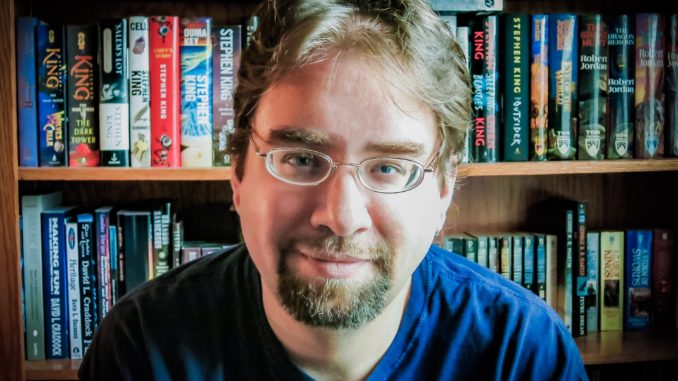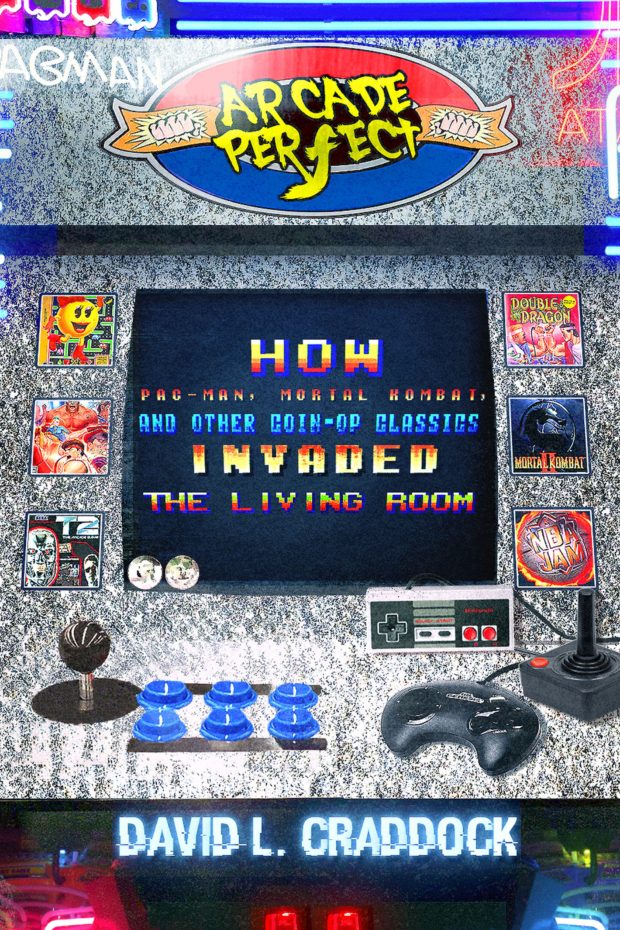
Review Fix chats with “Arcade Perfect: How Pac-Man, Mortal Kombat, and Other Coin-Op Classics Invaded the Living Room†author David L. Craddock, who discusses the book and why it’s one gamers- and everyone else, will love.

Review Fix: What inspired this book?
David L. Craddock: Like every kid who grew up in the ‘80s and ‘90s, I looked forward to playing my favorite arcade games at home. Street Fighter II, Mortal Kombat, Teenage Mutant Ninja Turtles, Golden Axe—name the conversion, and I couldn’t wait to get my hands on it.
However, I noticed early on that the games I played at home often bore little resemblance to the games I’d fed my quarters—well, my mom’s quarters—to in my local arcade. TMNT 2: The Arcade Game, for example, had smaller character sprites, longer levels, and new enemies, areas, and bosses. The gap between original material and conversions narrowed as time went on, but it wasn’t until the 32-bit era that we started seeing “arcade perfect†ports.
I’ve always wondered about the stories behind those ports.
What was it like, for instance, to work on Mortal Kombat 1 for Sculptured Software, knowing the team at Probe had Sega’s blessing to include a code to enable all the blood and gore from the arcade—and knowing that meant Sega was likely to outsell Nintendo’s version because of it?
What was it like being part of the team that toiled away on getting an arcade game as close as possible on less powerful hardware, knowing your version was likely to sell millions, but that the creators of the original arcade games would get all the credit?
Arcade Perfect represents my quest to answer those and other questions
Review Fix: What was your reporting process like?
Craddock: My top priority was to talk to people. That may sound obvious, but consider how many articles, podcasts, and videos have been made about Street Fighter II and Mortal Kombat. I wanted to add something beyond a surface-level discussion of aesthetic and content changes. I wanted to answer the why and how of arcade-to-home conversions.
So, I pounded pavement, so to speak. I reached out to a few people I already knew from 15+ years writing about games as an author and journalist. For anyone I didn’t know, I combed through LinkedIn, Facebook, Twitter, and hit up contacts for favors: “Oh, you know so-and-so? Could you put me in contact so I can talk to them about this book?â€
Review Fix: What makes this book special?
Craddock: What makes this book special to me, and special in general, is its focus on conversions of arcade games rather than the original arcade games. Everybody knows Ed “Noob†Boon and John “Saibot†Tobias as the co-creators of Mortal Kombat, but nobody knows much about Paul Carruthers, the lone engineer of MK1 on Sega Genesis, or Jeff Peters, the director at Sculptured Software who headed up the team that worked on MK1 and 2 for SNES.
Those and other developers deserve to be known. In a way, their games are copies of something that already existed. But think about how well home releases of movies do compared to theatrical releases. A movie that makes $500 million in theaters is likely to double or quadruple that amount when the film is available to watch at home, because people enjoy watching movies in the privacy and comfort of their living rooms.
Conversions of arcade games work the same way. Mortal Kombat made millions in quarters, but the primary home versions—Genesis, SNES, Game Boy, and Game Gear—did so much more because the audience was so much larger.
Review Fix: Who do you think will enjoy it the most?
Craddock: Arcade Perfect appeals to almost anyone. It’s great for players who enjoyed arcade games and have fond memories of playing home releases. It’s great for developers who want to learn all the hoops their peers had to jump through back in the day of low-end hardware such as the Atari 2600 and Game Gear. It’s great for readers who don’t know or care much about games, but who enjoy stories of people following their dreams.
Review Fix: Any fun stories of your reporting process?
Craddock: I loved reaching out to people who hadn’t been contacted years, and registering their surprise that someone (me) wanted to talk to them. Most of the games I write about in Arcade Perfect are decades old, and many of those developers have long since moved on to other games, or even other careers. Keith Burkhill, the programmer in charge of Street Fighter Alpha 3 for Game Boy Advance, hadn’t done an interview in over 10 years.
Why? You’ll have to read the book to find out… ;)
Review Fix: Favorite chapter? Why?
Craddock: Chapter 10, “Street Fighter II.†After TMNT, SF2 was the game that defined arcades for me—until Mortal Kombat came along. Chapter 10 is unique, however, because rather than talk about ports, I delve into the role and functionality of emulators, a topic of increasing prevalence now that consoles such as PS4, Xbox One, and Switch host dozens of anthologies of arcade games.
Review Fix: What’s next?
Craddock: Stay Awhile and Listen: Book II, the next installment in my trilogy about the history of Blizzard Entertainment and Blizzard North, and the Diablo franchise.
Review Fix: Anything else you’d like to add?
Craddock: Arcade Perfect came together in four-and-a-half months: three months of interviews, transcribing, and outlining; six weeks of furious writing and revising. It was all I could think about. I loved everything about the process of researching and writing this book, and hope you and your readers enjoy it, too!


Leave a Reply